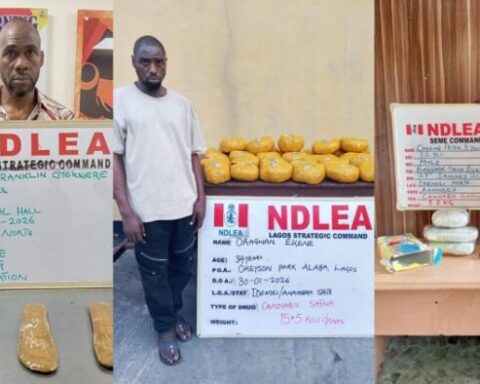By Abujah Racheal
Seven youth-led organisations across Africa and South Asia have received omore than 50,000 pounds in funding to implement innovative animal health campaigns that promote responsible antibiotic use.
This is in a significant move to address the growing threat of antimicrobial resistance (AMR),
The announcement was made by The Trinity Challenge, on Monday in Abuja.
The News Agency of Nigeria(NAN) reports that the winners of the Youth Funding Competition were selected from a highly competitive pool of more than 80 applicants spanning 35 countries.
The countries include those in Latin America, the Middle East, and Asia.
The focus of the competition is to fund sustainable, youth-driven solutions that reduce the use of antibiotics in animals by promoting biosecurity measures such as vaccination, improved hygiene and better nutrition.
Among the winning teams are initiatives based in Kenya, Nigeria, Zambia, South Africa, Tanzania, and India.
Each of them proposed creative, grassroots approaches to curbing the misuse of antibiotics in farming, a key driver of drug-resistant infections.
Dame Sally Davies, Executive Chair and Founder of the Trinity Challenge, expressed the group’s excitement to support the youth-led animal health campaigns and to witness theirimpact.
”This is not only in their communities, but in the global response to the antibiotic emergency,” she said.
Davies said that the winning projects represented a diverse range of innovative, community-driven solutions to combat AMR.
“In Kenya, the G.O.A.T (Goats Offering AMR/AMU Teaching) project addresses mastitis control through farm-based practices.
“In Tanzania, Healthy Farming, No AMR, led by One Health Society, promotes awareness and prevention strategies for responsible antibiotic use in livestock.
“In Zambia, Hygiene for our Flock is working to improve animal husbandry practices to reduce antibiotic reliance,” she said.
According to her, “Level Up Biosecurity, Lock Out AMR”, a multi-country initiative operating across Nigeria, Uganda, and Kenya, is led by Vet Konect and focuses on deploying digital tools and training for farmers.
“South Africa’s Protecting Cultural Livelihoods, implemented by Eh! woza, integrates AMR awareness with community storytelling and cultural practices.
“Meanwhile, in India, “From Campus to Farm”, in partnership with “ReAct Asia-Pacific”, mobilises students to engage in antimicrobial stewardship outreach from universities to agricultural communities,” she said.
She said that the projects were officially unveiled on May 20 and would receive both financial support and tailored coaching from public health experts.
Davies said that AMR, often dubbed the “silent pandemic” posed a major global threat, making once-treatable infections difficult or impossible to cure.
“Overuse and misuse of antibiotics in both human medicine and agriculture have accelerated the emergence of resistant microbes.
“In many low- and middle-income countries, antibiotics are frequently used in animals to compensate for poor hygiene or overcrowded conditions.
“This increases the likelihood of resistant bacteria transferring from animals to humans through food or environmental contact,” she said.
She said that the challenge was empowering young people to take ownership of local solutions, which is crucial for driving behaviour change and promoting health system resilience.
“There is an important role for the perspective and contribution of young leaders in driving meaningful change.
“These projects will help raise awareness, drive community engagement, and inspire action,” she said.
NAN reports that the youth engagement initiative is supported by the Ineos Oxford Institute for Antimicrobial Research, and reflects a growing international commitment to tackling AMR through innovation, education, and collaboration.
The Trinity Challenge, which launched its first youth competition in 2023, focuses on data-driven and scalable health solutions that can help prevent future pandemics and health emergencies.
Follow us on all social media platforms @dailyquery for news and analyses around the globe.



























